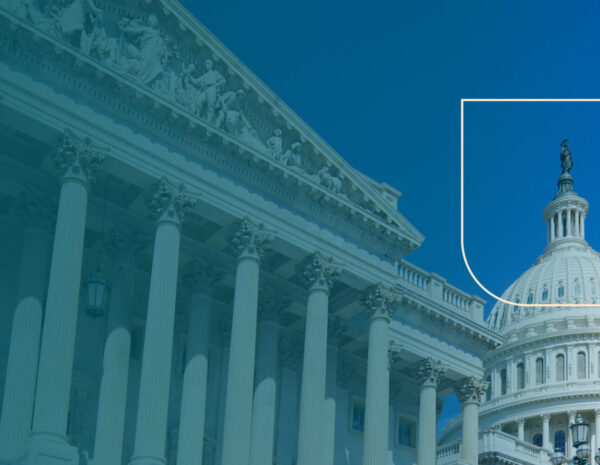Shelter is a basic human need, but it has become increasingly costly. Whether they want to rent or own, Americans seeking a home are met with soaring prices and fierce competition.
Housing is likely to be top of mind for voters in the 2024 elections. To understand how it may motivate them, this blog takes a look at the housing affordability crisis and how some elected officials are addressing it.
The Housing Affordability Crisis
The United States is facing a housing affordability crisis affecting both buyers and renters. A combination of low supply, high demand, high interest rates, inflation, and a global pandemic have sent prices skyrocketing. Why are housing prices so high, and what are the consequences for Americans? Let’s look deeper.
Rising Housing Costs
Housing prices have been rising for several years, but that rise sped up dramatically in 2020. The main reason for this is a lack of supply: not enough houses are being built or sold for the level of housing demand.
From 2018 to 2020, the country’s housing shortage was already growing. Then, in 2020, supply chain issues from the COVID-19 pandemic slowed construction and made supplies more expensive. When construction picked up again, it couldn’t catch up with rising demand. The shortage exploded.
Average mortgage interest rates increased, more than doubling between 2021 and 2023. They have since decreased, but not by much. This can make available homes unaffordable for would-be buyers. It also encourages would-be sellers not to move in order to stay in their current lower-interest mortgages. As a result, fewer existing homes are going on the market.
Seniors especially are staying in their homes longer than they used to. Today, 56% of owner-occupied homes with three or more bedrooms are occupied by only one or two people, most of them age 62 and older. Families who would otherwise need more space are making do with smaller homes until it’s easier to buy a larger one. This means there are fewer small, affordable homes on the market for first-time and low-income home buyers.
The Rental Housing Market
The housing affordability crisis has also hit the rental housing market. When people can’t find or afford a house to buy, they need to rent instead. This has increased the demand for rental housing, driving up costs. Rent increases are outpacing wage increases across the country. In 2022, about half of renters nationwide – a record number – spent more than 30% of their income. They may be forced to choose between their rent payments and food, healthcare, or other basic expenses.
A Shortage of Affordable Housing Units
High housing costs have hit those with low incomes the hardest. There is a shortage of 7.3 million affordable and available rental homes for extremely low-income renters. A growing number of people simply can’t find a place to live.
As rent increases, so does homelessness. Not only are more people evicted or forced to leave their homes, but fewer unhoused people are able to exit homelessness as well. Homelessness grew by more than 12% in 2023, the biggest increase since records began in 2007.
The State of Housing Policy in 2024
Housing policy is often left to state and local governments to handle. However, federal policy can incentivize them to change certain rules and regulations. It also can provide grant funding for housing programs like vouchers and subsidized housing projects.
Federal Housing Policy
President Biden has repeatedly called on Congress to pass housing legislation, but so far, no significant bill on the topic has passed the House and Senate during his tenure.
In 2022, the Biden administration released the Housing Supply Action Plan, intended to help grow the supply of housing and lower costs. The plan promises to give communities with reformed zoning and land-use policies an advantage in some federal grant programs. It also aims to provide new and expanded financing for manufactured housing, Accessory Dwelling Units (ADUs), 2-to-4-unit properties, and smaller multifamily buildings.
Biden also has called on Congress to pass tax credits for first-time home buyers and sellers, set a cap on rent increases, and take other measures to improve housing supply and access. The administration’s goal is to enable the building or renovating of 2 million homes.
In June of 2024, the Biden administration announced housing grant awards totaling $85 million to 21 state and local governments. The grants were made under the Pathways to Removing Obstacles to Housing (PRO Housing) program with the aim of removing barriers to home construction.
New State Housing Policies
Arizona and Colorado have both passed significant housing legislation in 2024. The two states legalized ADUs in major cities. An ADU, also called a secondary dwelling unit, in-law unit, or granny flat, is a smaller housing unit on the same property as a single-family dwelling. These increase the housing supply without the need for more property.
Colorado’s suite of housing bills also include:
- HB 24-1304, which bans mandatory residential parking minimums along major transit routes
- HB 24-1313, which requires larger cities to allow zoning for higher-density housing near major transit lines
- HB 24-1434, which expands the state’s affordable housing tax credit
Arizona HB 2721 requires major cities to allow different types of housing units, such as townhomes, duplexes, triplexes, or quadplexes, within a mile of their central business districts. These units are known as “middle housing” — something between single-family homes and large apartment complexes — and they can help increase the supply of housing on a small amount of land.
How Is Housing Policy Impacting the 2024 Elections?
The cost of housing is one of the top financial worries of Americans right now. It’s a main driver of inflation that is keenly felt by many households across the country. When voters go to the polls in November, housing policy will likely be on the minds of many.
Recently, President Biden announced he is exiting the presidential race, endorsing Vice President Harris in his place. While the Democratic Party has not officially chosen its nominee, Harris is the most likely candidate to replace him.
Harris has expressed similar views to Biden on the topic of housing policy, both while in office and during her campaign for President in 2020. As a Senator, Harris and Rep. Maxine Waters introduced the Housing is Infrastructure Act. The bill, which did not pass, would have invested $70 billion into public housing and an additional $10 million into efforts to eliminate zoning requirements. It also included funding to construct rental units for low-income households.
The Republican Party nominee, former President Trump, pushed for cuts to housing assistance programs and public housing while in office. He also removed some fair housing protections, which Biden later reinstated. His record on the issue of zoning has been mixed. During his presidency, the U.S. Department of Housing and Urban Development encouraged state and local deregulation. These efforts ended when Trump voiced support for zoning regulations that he said would protect suburbs. He recently made remarks calling zoning restrictions “a killer,” though, suggesting he would once again support removing them.
Trump also has said he would “ban urban camping” and create tent cities for homeless people, where doctors and social workers would be on hand to help them.
Get Started With Plural to Track Housing Policy
Top public policy experts trust Plural for their legislative tracking needs. With Plural, you’ll:
- Access superior public policy data
- Be the first to know about new bills and changes in bill status
- Streamline your day with seamless organization features
- Harness the power of time-saving AI tools to gain insights into individual bills and the entire legislative landscape
- Keep everyone on the same page with internal collaboration and external reporting all in one place
Interested in getting started? Create a free account or book a demo today!
More Resources for Public Policy Teams
Plural Asks: Get to Know a Policy Pro, Dr. Vineeta Gupta
In this series, you’ll learn about the career paths of impactful public policy shapers and champions. Dr. Vineeta Gupta, Organizational Growth & Philanthropy Strategist | Systems Change Leader Human rights advocacy is about shifting power, holding systems accountable, and building a society where dignity, equity, and freedom, and justice are ensured irrespective of race, gender, […]
Understanding the Byrd Rule: How Senate Rules Will Change the One Big Beautiful Bill Act
It is safe to say we have entered a new phase of President Trump’s second presidency. The chaotic first four months was largely defined by an unprecedented flurry of executive action, Elon Musk’s efforts to shrink the federal bureaucracy, and rising geopolitical tensions resulting from the administration’s trade policies. The centerpiece of this next phase […]
The AI Advantage: What Forward-Thinking Policy Teams Are Doing Differently
As the volume and velocity of policy change accelerates, government relations (GR), legal, and compliance teams are facing mounting pressure to keep up. Traditional tools and workflows are no longer sufficient. Forward-thinking organizations are turning to artificial intelligence (AI) to build smarter, faster, and more strategic policy functions. AI isn’t just a buzzword in this […]



